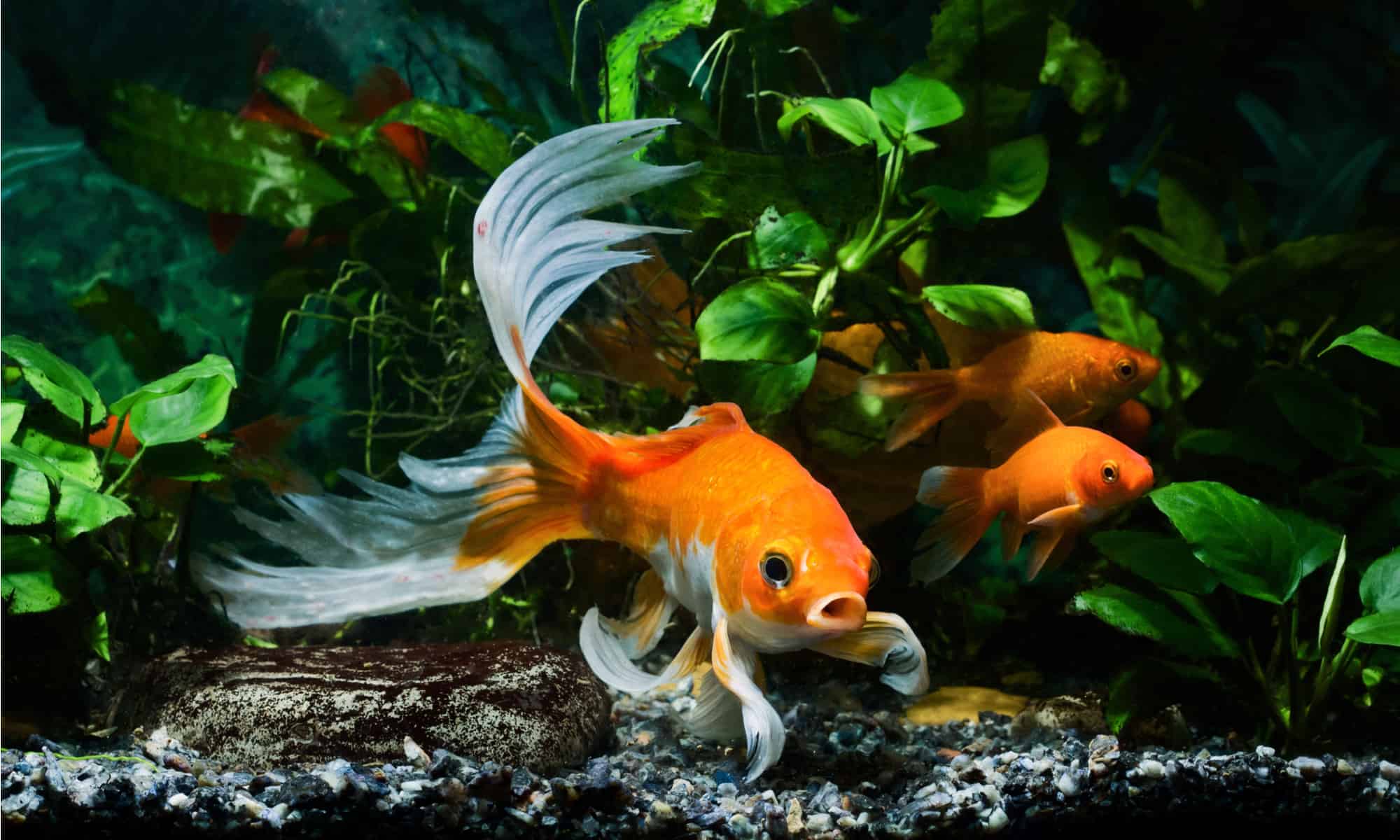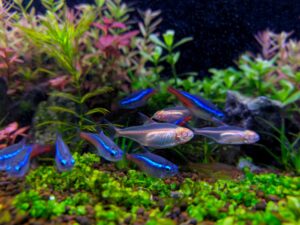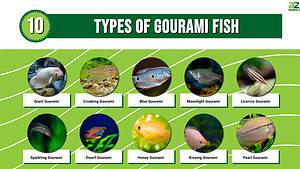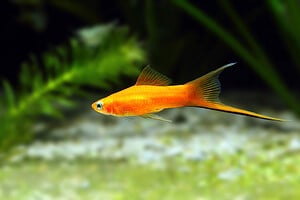Betta and goldfish rank among the world’s top fish species, but you should house them separately due to various factors. These factors encompass distinct water needs, behavior, food preferences, swimming patterns, lifespan, and vulnerability to ailments.
Keeping betta fish and goldfish in the same tank could induce stress, sickness, or death. They must reside in distinct tanks tailored to their specific water conditions, nutrition, and surrounding requirements to coexist.
What You Need to Know About Goldfish
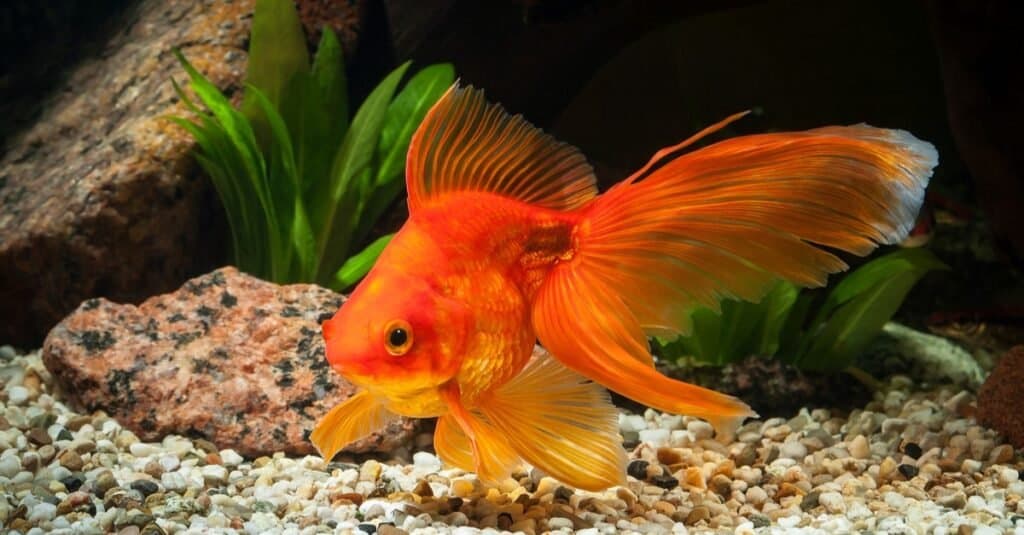
Goldfish belong to the Cyprinidae family and the Carassius genus.
©dien/Shutterstock.com
Goldfish, cherished in the aquarium world, captivate with their vibrant colors, unique shapes, and friendly personalities. They are a variation of common carp, and breeders have honed their features for centuries, resulting in diverse colors and fin types. Goldfish usually stay small, but some can grow up to 12 inches or more, making them a visually striking choice for home aquariums. What’s truly fascinating is their potential for longevity; with proper care, they can live well over a decade, and some even exceed two decades.
Goldfish possess an engaging and social nature. They can recognize their owners and eagerly approach them during feeding times. These fish are hardy and straightforward to care for, making them suitable for both novice and seasoned fish owners. Nonetheless, they require a well-maintained habitat with ample space, clean water, and effective filtration to thrive. Providing them with these essentials ensures that these companions continue to grace our lives with elegance and charm for years.
What You Need to Know About Betta Fish
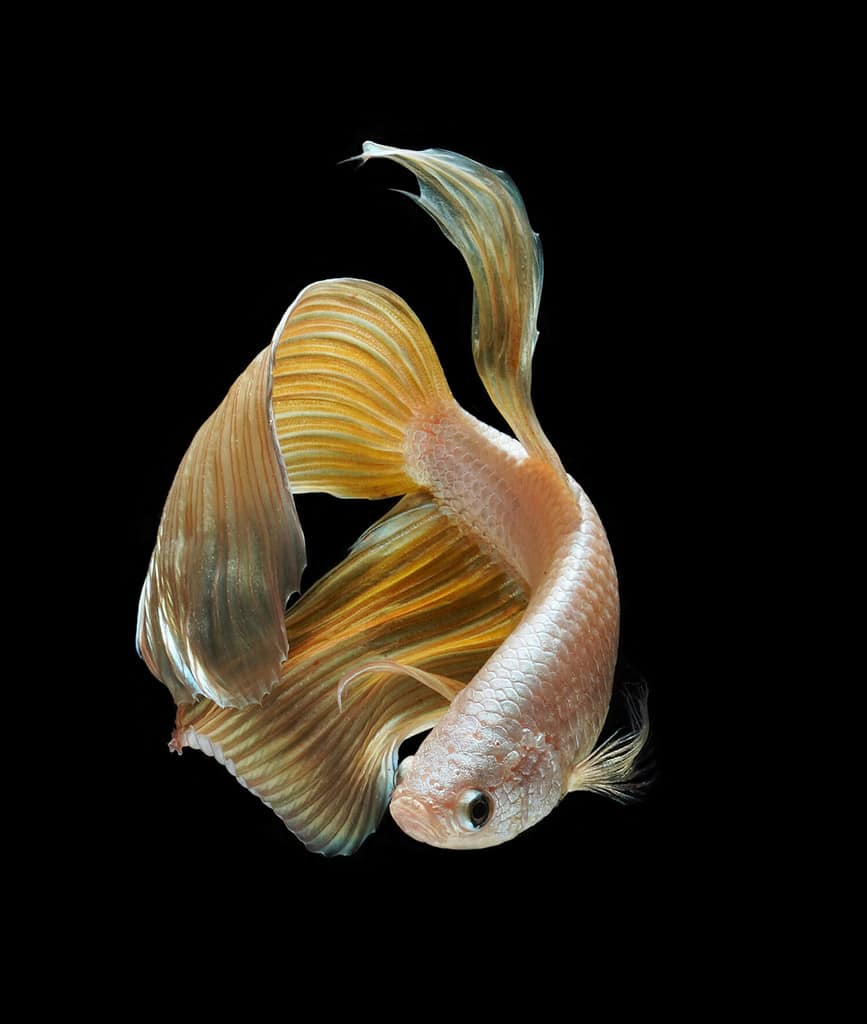
These aggressive fish need their space.
©Christianus Mangiwa/Shutterstock.com
Betta fish, highly prized in the aquarium community, enthrall enthusiasts with their vibrant colors, distinctive fin shapes, and engaging personalities. These freshwater fish, originating from Southeast Asia, have been selectively bred for generations, resulting in a dazzling array of colors and fin types. Bettas are typically compact, but some individuals can grow up to 3 inches or more, making them a visually captivating choice for home aquariums. Betta fish can live for 2 to 3 years or more with proper care.
Betta fish are known for their interactive and territorial behaviors. They can recognize their surroundings and may display a range of fascinating behaviors, from flaring their fins to building bubble nests. These fish are hardy and relatively straightforward to care for, making them an excellent choice for novice and experienced aquarists.
However, to ensure their well-being, they require a well-maintained tank with suitable water conditions, regular feeding, and careful consideration of tank mates when kept with other fish. Providing these essentials ensures that these captivating aquatic companions continue to add beauty and fascination to our aquariums for years to come. Betta and goldfish are popular but incompatible due to several reasons:
1. Water Parameters:

Temperature matters when it comes to goldfish and betta fish.
©AgriTech/Shutterstock.com
Betta fish prefer warmer water (pH 6.5-7.5), while goldfish thrive in cooler water (pH 7.0-8.0). Mismatched water conditions can distress and sicken both.
Example: A cold tank harms betta fish, making them sluggish, while warm water stresses goldfish, causing skin infections.
Solution: Keep them apart in appropriately adjusted tanks.
2. Temperaments:

Putting fish together that don’t mix well is a bad idea.
©panpilai paipa/Shutterstock.com
Betta fish are aggressive, especially towards other males, while goldfish are peaceful. Co-habitation may trigger fights and injuries.
Example: Betta fish may perceive goldfish’s fins as threats, leading to fin nipping and potential infections.
Solution: If mixing species, choose compatible tank mates for each.
3. Diet:
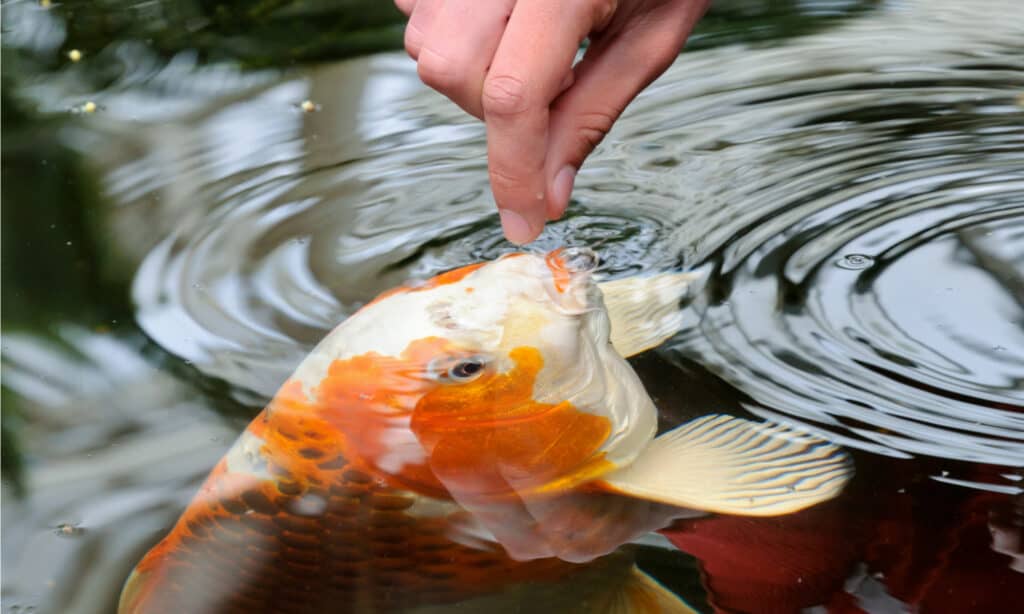
The diets of goldfish and betta fish differ in significant ways.
©Paul van den Berg/Shutterstock.com
Betta fish are carnivores, needing live food like brine shrimp and bloodworms, while goldfish are omnivores, accepting flakes, pellets, and live food.
Example: Feeding goldfish food to betta fish deprives them of vital nutrients, while betta food can cause constipation in goldfish.
Solution: Provide species-appropriate diets with available fish foods.
4. Swimming Styles:
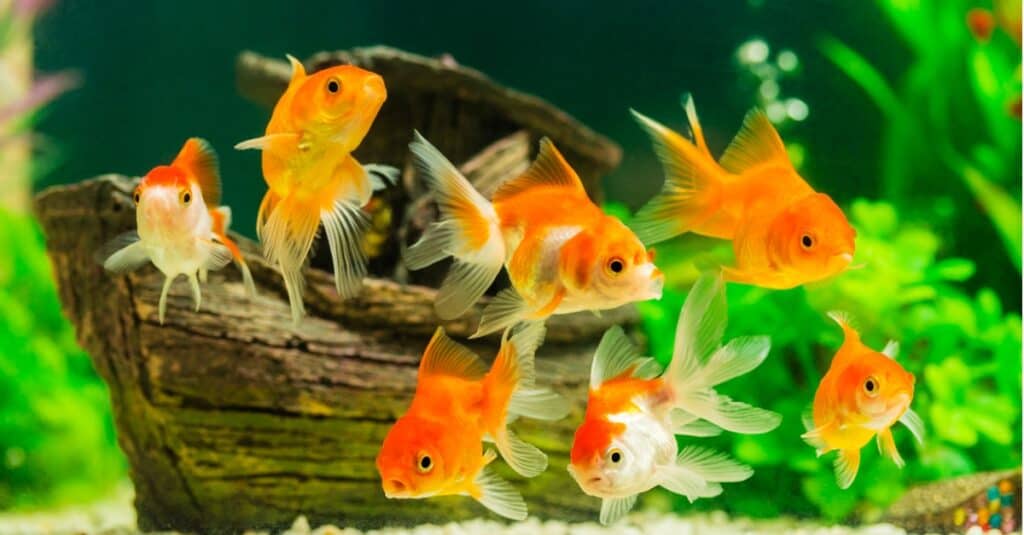
Speed matters more than you might think.
©iStock.com/satit_srihin
Betta fish move slowly, whereas goldfish are swift, leading to competition for food and space.
Example: Betta fish struggle to reach food quickly and lose weight, while goldfish may feel crowded and stressed.
Solution: Ensure a spacious tank with hiding spots for the betta fish’s comfort.
5. Lifespans:
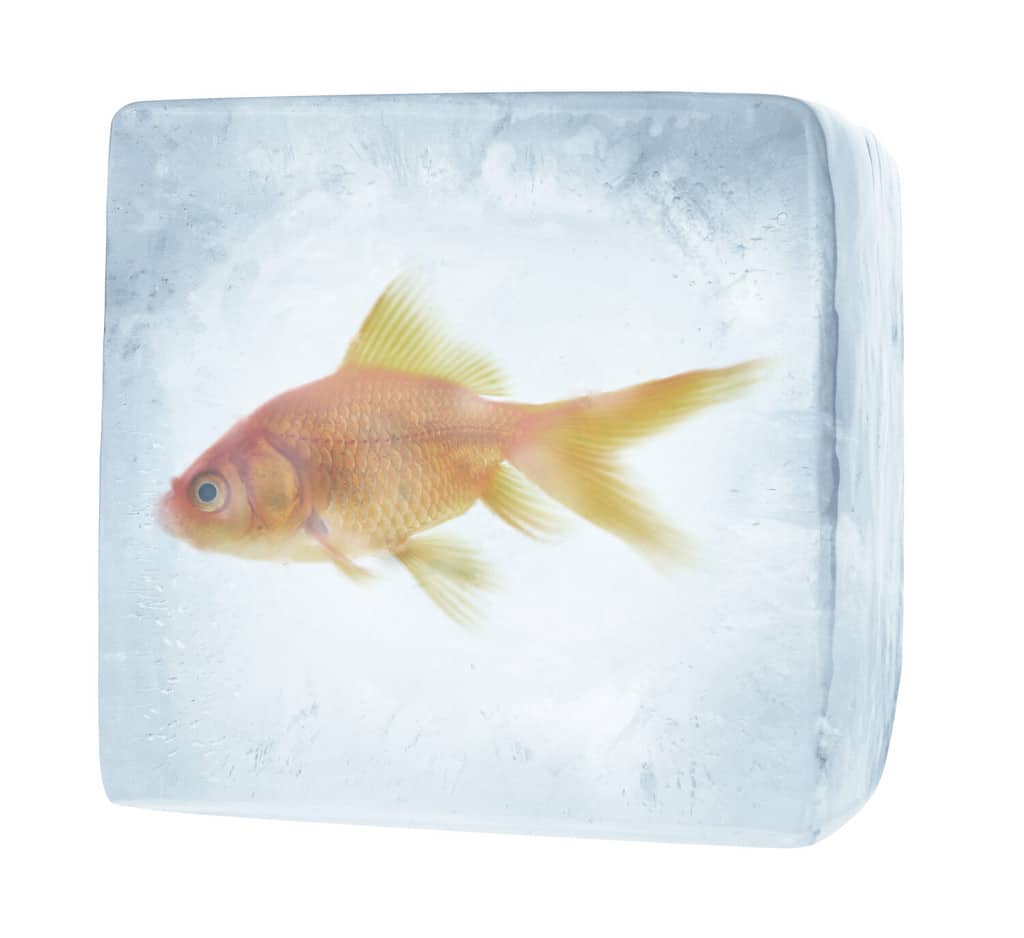
There’s a big difference in lifespan between the goldfish and betta fish.
©hidesy/Shutterstock.com
Betta fish live 2-3 years, while goldfish can live up to 20 years. goldfish will outgrow small tanks, leading to stunted growth.
Example: Inadequate space stunts goldfish, causing health problems and reducing lifespan.
Solution: Commit to larger tanks for growing goldfish.
6. Susceptibility to Disease:
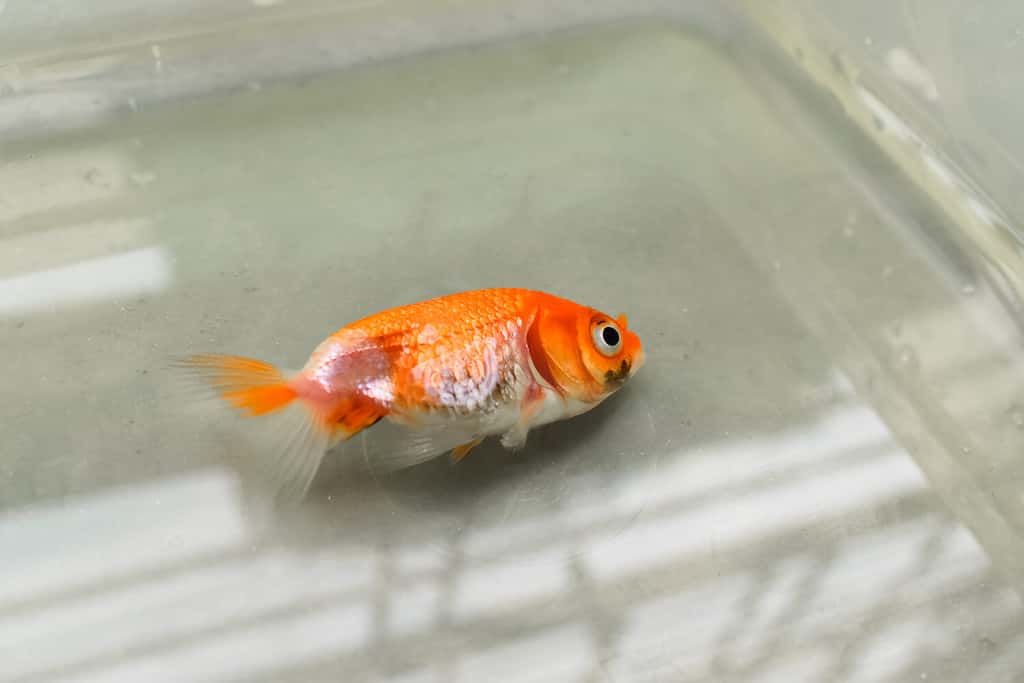
Red pest disease can afflict fish of any color.
©Zay Nyi Nyi/Shutterstock.com
Betta fish and goldfish are vulnerable to different diseases; one ill fish can infect the others.
Example: Betta fish may suffer from ich, fin rot, and velvet, while goldfish face ulcers, dropsy, and swim bladder disorders.
Solution: Maintain clean tanks and quarantine new fish to prevent disease spread.
Betta fish and goldfish must dwell in separate tanks due to differing water needs, behavior, diets, swimming styles, lifespans, and disease risks. To ensure their well-being, house them separately, catering to their unique water conditions, food, and environmental requirements. These measures promote long, healthy lives for your fish.
Thank you for reading! Have some feedback for us? Contact the AZ Animals editorial team.

